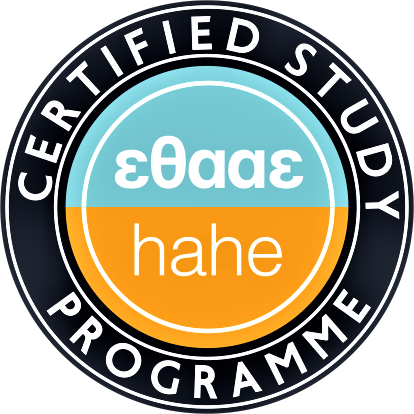Specializations
- Specializations
-
Students can choose one of the two specializations offered by the department:
A. International Economics and Finance
B. International and European Political Economy
In each specialization, students must attend a certain number of required courses. Students can then choose from a number of elective courses offered by DIEES or other departments of the university.Students who do not wish to follow either of the specializations can – in addition to taking the courses required by the Department – choose any courses offered by the two specializations or the elective courses offered by DIEES, and up to three courses offered by other departments.
Students participating in Exchange Programmes between universities can also choose courses that are offered by the host university. However, they must receive approval from the department’s exchange programme coordinator.
- Enrolling in Courses
-
For students admitted in the academic year 2010-2011 or after, courses are organised into 8 semesters. In each semester, there is a maximum number of courses students can enroll in, as shown below:
1st Semester: 5 courses (foreign language course excluded)
2nd Semester: 5 courses (foreign language course excluded)
2nd Year: 14 courses (foreign language course excluded)
3rd Year: 15 courses
4th Year: 16 courses
- Foreign Languages
-
The DIEES considers foreign languages an essential requirement for improving the quality of education and enhancing the career prospects of university graduates.
For DIEES, the following foreign language courses are mandatory for all students:
English I or French I or German I
English II or French II or German II
English III or French III or German III
English IV or French IV or German IV
Furthermore, the standard numerical marking system (e.g. scale from 0 to 10) is not applied to these courses – an indication of pass or fail is used to evaluate student performance in exams. Therefore, the grades for these courses are not included in the calculation of the overall grade point average students achieve on their degree when they graduate. Students who have earned certain certificates of language competence may be exempted from certain foreign language courses.
Students holding a First Certificate level degree, or a B2 level foreign language certificate or equivalent degree, are exempted from courses English I / English II or French I / French II or German I / German II.
Students holding a Proficiency level degree, or a C2 level foreign language certificate or equivalent degree, are exempted from courses English III / English IV or French III / French IV or German III / German IV.
The following foreign language courses are optional:
English V or French V or German V
English VI or French VI or German VI
These courses are not included in the maximum number of courses in which students can enroll. Furthermore, the standard numerical marking system (scale from 0 to 10) is applied, and so these courses are included in the calculation of the overall grade point average students achieve on their degree. Students who enroll in these courses cannot request an exemption based on a foreign language certificate of any level.
NOTE: The above framework for foreign language courses applies to students admitted in the academic year 2009-2010 and after. An older framework applies to students who were admitted before 2009-2010. Further information regarding the changes in the foreign language requirement can be obtained from the Department Secretariat.
- Computer Applications
-
During the second semester of studies, students must attend a course in Informatics Applications in order to obtain knowledge and skills in using computer programmes and software packages that are deemed essential for their education and career. Classes are held at the Department’s computer laboratory, EUROLAB, where students also have access to Internet services and can work on their assignments.
Also in the 6th semester they have the opportunity to choose the Informatics Applications II course. Upon finishing the course students should know: Data introduction and management in R, execution of basic operations in R, construction and analysis of functions in R, use of R in economic applications.





 Patision 76
Patision 76 2108203 106 / 2108203 107
2108203 106 / 2108203 107 
